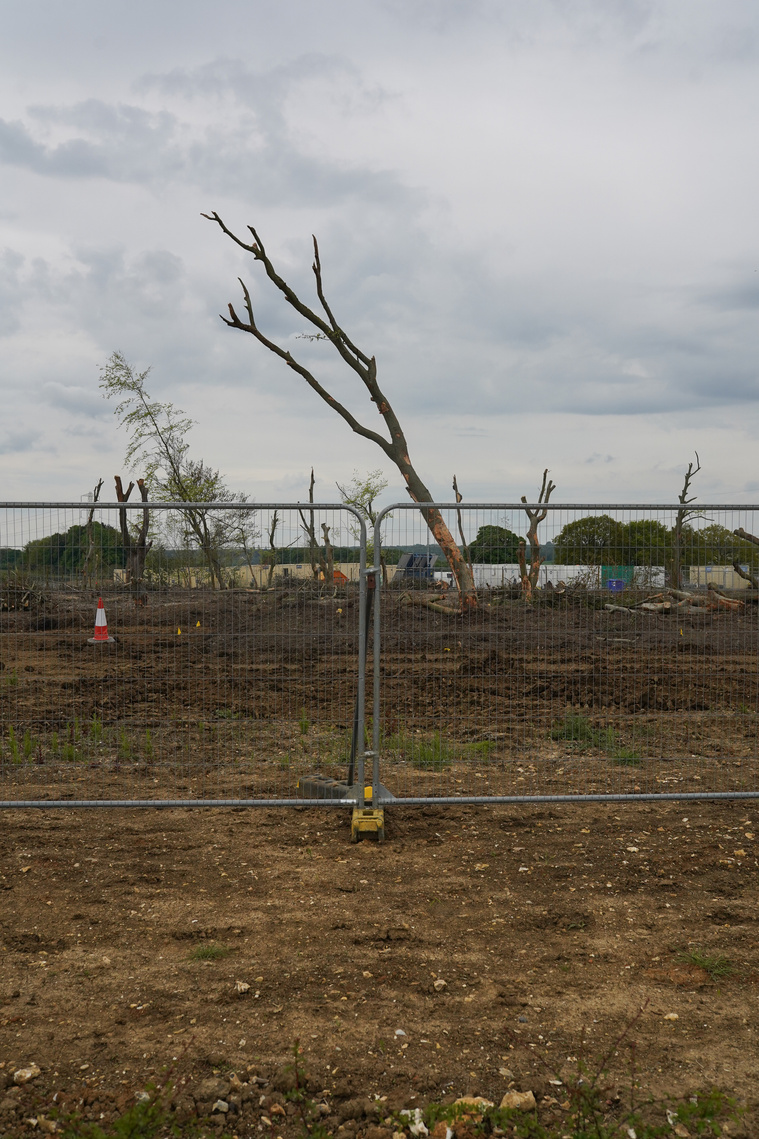High Speed 2 (HS2) is the most ambitious transport project ever attempted in the United Kingdom, as well as, one of the most contentious, with its construction resulting in the felling of more than 108 ancient woodlands, and the highest level of deforestation since World War One. The officials at HS2 argue it is possible to move these ecosystems and replant them in more convenient locations, whereas the local communities affected by this construction see this as a flawed argument as it ignores their deep-rooted cultural and social links to these natural spaces. Ultimately, we find the landscape becomes a place of deep division, oppression and conflict with power struggles over the natural habitat. This project is a multimedia investigation using photography, interviews and online analysis to understand the conflict of interest and social consequences through the analysis of Jones Hill Wood, an ancient woodland that is said to be the setting of Roald Dahl’s book Fantastic Mr. Fox, and surrounding spaces. The wood is located in the Chilterns, Buckinghamshire, a place designated by the UK as an area of outstanding natural beauty and of deep social significance to those that live and interact within it. What I observed were spaces fought over by two opposing ideologies of neo-liberal globalising politics on the one hand, and English rural localism on the other, a political landscape where power struggles result in oppression, violence and resistance, a space of conflict over how we define the natural world.





















-
-
-
Share